Ukrainian Famine and Genocide (Holodomor) Memorial Day: A Personal Journey
Today in the legislature we debated Bill M225: Ukrainian Famine and Genocide (Holodomor) Memorial Day Act at second reading. This is the bill that I introduced on Wednesday, October 23 to establish the fourth Saturday in November as an official day of remembrance: Ukrainian Famine and Genocide (Holodomor) Memorial Day.
In the video and text of my second reading speech (reproduced below) I speak to the importance of commemorating this atrocity and provide a narrative of my family’s struggles before, during and after the Holdomor in the Ukraine.
At the end of this post I also include my closing remarks (in video and text form). In these remarks I acknowledge the comments made by Tom Shypitka (BC Liberal MLA for Kootenay East), Michael Lee (BC Liberal MLA for Vancouver Langara), Bruce Ralston (Minister of Jobs, Trade and Technology and NDP MLA for Surrey-Whalley), and Michelle Mungall (Minister of Energy, Mines and Petroleum Resources and NDP MLA for Nelson-Creston), at second reading.
Seeing this bill pass second reading today was a very moving experience for me. Tomorrow the bill goes to committee stage. It is also expected to pass third reading tomorrow and receive Royal Assent on Thursday.
The Ambassador of Ukraine was in the gallery today and he will be formally acknowledged at the reception being hosted tomorrow in the legislature celebrating the legislation passing third reading.
Video of Speech
Text of Speech
Honourable Speaker, I move that Bill M225 be now read a second time.
It gives me great pleasure to rise and speak at second reading to Bill M225 the Ukrainian Famine and Genocide (Holodomor) Memorial Day Act.
As I noted upon introducing the bill at first reading, the term “Holodomor” is derived from the words морити голодом (moryty holodom) meaning extermination by hunger.
During Holodomor, between 3 and 5 million Ukrainians died as a result of a deliberate and politically-motivated famine in 1932-33.
This Bill, if passed, would allow the fourth Saturday in November to be memorialized by the Legislature as Ukrainian Famine and Genocide (Holodomor) Memorial Day.
Canada is home to the world’s third-largest Ukrainian population behind Ukraine and Russia, with an estimated 1.36 million Ukrainian-Canadians living across the country.
Among them are members of my family.
Please let me expand upon the importance of memorializing this horrific tragedy through the narrative of my own family’s experiences in the Ukraine.
I am profoundly grateful to my uncle, Bohdan Krawchenko, who was born in December 1946, shortly after the second world war in a refugee camp in the American zone of southern Germany, for helping me with our family’s history before, during and after the Holodomor.
Дядько Bohdan was Director of the Canadian Institute of Ukrainian Studies at the University of Alberta for many years before moving to the Ukraine in 1991.
There he became Director of Policy Studies at the Council of Advisors to the newly constituted Parliament of Ukraine after Ukraine declared its independence on August 24, 1991.
Bohdan Krawchenko is presently the Dean of the Graduate School of Development at the University of Central Asia in Kyrgyzstan where he also served as Director-General from 2007 to 2014.
My grandfather on my mother’s side, Alexander Krawchenko immigrated to Canada in late 1950, arriving in Montreal with $5 in his pocket and with a family of four waiting in France to join him.
Within a half a year or so, being a good welder, he had saved up enough money to pay for the transatlantic passage that brought everyone to Montreal.
Born in a small village in Dnipropetrovsk, eastern Ukraine, in 1914, he survived the offensives and counter-offensives during the 1917-20 revolution, Stalinist collectivization, the famine, repressions, and the horrors of the Second World War.
He often reminded his children – including my mother – that he was one of the fortunate ones – most people like him did not make it.
The Soviet regime was not established in Ukraine until 1919, after three attempts. At the end of 1918 the Bolshevik party in Ukraine had only 5,000 members in a country of 29 million people and Soviet power depended entirely on Red Army forces from Russia.
In 1919 the Bolsheviks implemented devastating agricultural policies of collectivization and forceful grain requisitions that led to the 1921 famine that claimed the lives of one million people and proved to be a dress rehearsal for a more ominous famine a decade later.
It implemented the New Economic Policy in 1921, NEP as it was popularly called; a more market oriented economic policy to foster economic growth.
It allowed private individuals to own small enterprises, but its biggest impact was on the countryside, abandoning the much-hated collectivization and allowed private holdings, including a relatively sane tax policy instead of forceful confiscation.
Agricultural production increased, 70% of peasants were members of cooperatives, there were huge leaps in educational achievement, the urban economy expanded and the Ukrainian countryside had one of the world’s highest birth rates.
All of this came to an end when Stalin decided on rapid industrialization that meant forced collectivization — that is the abolition of private holding and forcing peasants into state-controlled collective farms for the simple reason that it was easier this way to extract enormous surpluses through outright confiscation.
The fact that agricultural production plunged was not at issue — as long as surpluses could be extracted.
I should note that this catastrophic policy was also pursued by Mao Tse-tung, Stalin’s disciple, in the ‘Great Leap Forward’ from 1957-60 that resulted in 30 million deaths in China.
The country recovered under Deng Xiaoping who was greatly influenced by the experience of the New Economic Policy in his reforms.
Ukraine was always viewed by Russian Bolsheviks as something of an ‘El Dorado’ with its rich black soil whose agriculture produce was there for the taking.
But it had a troublesome peasantry, with its strong self-organization (village committees, cooperatives, and so on) that also served as the social base of the national idea.
If only it could be brought to heal, broken, then rapacious policies would encounter little resistance.

Top row (from left to right): My great grandfather Ustym, my grandfather Alexander, my great uncle Vasil, my great great grandmother (Ustym’s mother). Five of Ustym’s daughters stand in front of them.
My great grandfather, Ustym Krawchenko, was part of the large base of the natural leadership of village society that had to be removed.
He had seen the world having sailed some 20,000 nautical miles as an army conscript from Petersburg around the Cape of Good Hope, to land in the Far East to participate in one of the last battles of the 1905 Russo-Japanese War.
He was stirred by the Ukrainian revolution and during 1920s under the New Economic Plan he was active in village life and in 1925 a founder of the village improvement society.
There were nine children in the family, and the parents scrimped to send the eldest three boys, to institutions of higher education. They were sustained by a farm of some 5 hectares.
As Stalin moved towards collectivization, in 1927 there was a large tax increase on the middle and higher income peasants.
The vast majority of peasants in Ukraine were middle peasants holding some 4-7 hectares of land.
That year, at a meeting of the village council (recalling that at that time these councils played a significant role), Ustym criticized this measure arguing that it would lower incentives of peasant households to generate surpluses.
The village council supported his position and voted against the tax increase. A few days later Soviet security services arrested him and he spent half a year in prison.
Ustym was released in May 1928, the year Stalin declared industrialization; and the first step of collectivization.
The onslaught of the Ukrainian peasantry began with the so-called ‘dekulakization’ campaign that involved ridding the countryside of its most productive strata and its natural leadership.
The aim was “the liquidation of the kulaks as a class”. Their property was to be confiscated and one group was to be imprisoned in concentration camps or shot; the other deported to Siberia or Northern Russia; and the third re-settled in another location.
My family fell into the second category.
On 5 March 1930 a de-kulakization brigade comprising Party activists, the OGPU (the forerunner of the KGB) and urban residents descended on the village and ordered the family out of the house and took them to be loaded on a crowed cattle wagon headed for the woodlands of Northern Russia, the Vologda region.
Aboard was Ustym, aged 50, his wife – 41, and five of the youngest of nine children who were at home at that time: my grandfather who was 15, and four girls, aged 11, twins aged 8 and a 5 year old.
After some two weeks on the cattle wagon they were deposited in Vologda where it was still winter. Women and children were separated from abled bodied men and herded into a Church.
Conditions were appalling – there was one loaf of bread for 18 people. Children started to die en masse.
The mortality rate was so high that the camp commander petitioned authorities to allow children under the age of 15 to be sent to their relatives and friends.
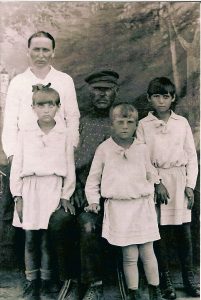
My great grandfather Ustym, his eldest daughter Maria (born in 1912), and three of this other daughters (including the twins).
The four girls, the eldest being 11, were put on a train alone and sent to Dnipropetrovsk in Ukraine into the care of one of their elder brothers, my great uncle дядько Vasyl, a 21-year old engineering student.
Ustym, their father, was driven into the woods to work to fell trees. It was winter and he was half barefooted since his boots were torn.
In a letter to Vasyl he wrote, “We are doomed here to a gradual death from starvation. We are told here that a bullet is worth more than anyone of us, the exiled.
So you all together must take care of your sisters and brothers, to save them, and lead them on the path that your parents put you on. I myself am destined to find a grave in the woods of Vologda Governorate”.
He quoted a poem written by one of his fellow exiles, from the Odessa region, “When I remember Ukraine, my heart sinks… Cry children of Ukraine, grow up in tears… [and one day] we will cry, and sing, and rejoice together.”
As a side note, in 1930, before the fully-blown apparatus of repression was established, people wrote letters where they expressed themselves in a manner that would be unthinkable a few years later.
My great uncle Vasyl collected 22 such letters he received from various members of the family burning the originals after transcribing them into school notebooks.
He clung to them when Germans took him from Ukraine during the Second World War as forced labour where he remained after the war.
My grandfather and his mother escaped the Vologda region.
With the young girls gone, the authorities decided to move them to where the men were working in the woods.
There was no place to live, no food, and they lived on the street. There was only one way out – to flee.
It was an epic journey of almost 1,500 kilometers.
My grandfather was 15 years old, as he wrote in a letter to his brother Vasyl, “If a runaway is caught, he or she is arrested…A Ukrainian is easily distinguished from a Russian…I learnt to speak their tongue and got a Russian jacket, and dressed mother in a Russian sarafan (which was the national dress).”
His mother had to pretend she was a deaf-mute since she didn’t know Russian. They slept in the woods or haylofts, and begged for food.
There was a dramatic moment when they reached the river Sukhona that they had to cross.
As they waited, as grandfather wrote, “The militia came, they sat in the boat and I pleaded them to take us across, I thought – we were caught.
But they only asked, ‘Where are you going?’ ‘To work’, I said…and they didn’t react at all”.
By the end of 1930 they made it to Ukraine, to Vasyl’s cramped quarters, and my grandfather was about to turn 16. Imagine that — he was just 15 when he made the 1500 km trek with his mother.
They couldn’t stay in Dnipropetrovsk…as escapees they would be punished.
My grandfather did what thousands of other runaways did – he fled to the eastern cities of Ukraine where industrialization created a massive demand for labour.
The industrial centres were a cauldron. You could lie about where you came from, and in this period there was no way authorities could quickly verify the information.
He worked on a massive construction site – the building of the Dnipro Hydro Electric Dam, just outside of Zaporizhzhia, carrying heavy drills up scaffolding at the age of 16.
Then he moved deeper into the industrial heartland, Donetsk oblast, changing jobs if it looked like the truth would emerge that he had fled exile. My grandfather excelled at welding.
He visited nearby Berdiansk, a town by the sea where he met my baba Antonina whose family were rooted city dwellers with their own house, and she worked in an office at an enterprise and was quite adept at getting him various identity papers.
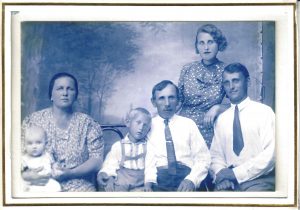
From left to right (taken in the Ukraine in 1940): My mother Ludmilla, my great grandmother (on my grandmother’s side), my uncle Oleh, my great grandfather Matvei Zinov (on my grandmother’s side), my grandmother Antonina, My grandfather Alexander.
They married – he was 20 and she was 18. One year later, my uncle Oleh was born in Donetsk, and my mother, four years later in Berdiansk.
The town had several machine-building plants and there they lived until the middle of the Second World War.
The rest of the family was scattered: the elder sister in one place, the young girls and mother either together with one of the brothers or other relatives.
One brother (a land surveyor) even spent a short while in Tajikistan. But Ustym did make it back to Ukraine.
He “broke away” as one brother wrote in a letter, meandered to Kazan, capital of Tatarstan, found work in Stalingrad, and moved to Donetsk. Ustym, my great grandfather died in 1951 far away from the Vologda forests.
After the Second World War he and his wife moved to Truskavets, Lviv oblast, Western Ukraine where he worked building wells in this town of spas.
It is cruel twist of fate that those such as my grandfather’s family who were exiled for their resistance to collectivization and not allowed to return to their village survived the 1930s because of this.
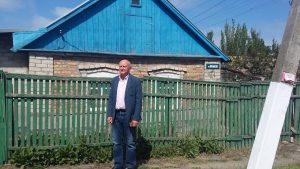
The family home where my mother was born in Berdiansk. My uncle Bohdan, who was instrumental in putting this story together, is in the foreground.
For what unfolded in the Ukrainian villages was horrific. Collectivization was accelerated in the winter of 1930-1931 and there was large scale resistance.
Revolts and uprising broke out in many villages. Peasants slaughtered their cattle rather than turn them over to collective farms. Draconian grain requisition quotas were set that included the confiscation of seed grain.
By early 1933, the average peasant family comprising five or six people was left with 80 kilograms of grain to feed themselves.
Peasants were forbidden to leave collective farms, and Ukraine’s borders were closely patrolled to prevent the starving to search for bread in Russia.
One of the worst famines in human history that killed millions ravaged Ukraine — the Holodomor — it is one that could have been totally avoided. Collectivization and the famine-genocide of 1932-3 destroyed the peasants as a social stratum.
The Ukrainian village was silenced and never again rose in opposition to the Soviet regime.
Ukraine had not recovered from the traumas of the 1930s when it was plunged into the cauldron of the Second World War.
It was the largest Soviet republic which the Germans occupied in full and armies swept through it four times:
the Nazi invasion and the Soviet army retreat that involved a scorched earth policy destroying all that could not be evacuated and included the execution of inmates in NKVD prisons (as the secret police had called then);
the German retreat that left yet another trail of destruction; and the retaking of the country by Soviet forces.
Not once, but twice, the fact that my grandfather was a welder saved his and his family’s lives … forced labour, also called slave labour, work camps were the destiny for my family.
This war was characterized by unheard of brutalities outside the field of battle. During the occupation some 5 million civilians were killed of whom over 600,000 were Jews.
1.4 million military personnel either perished on the fronts or died as prisoners of war. Every third man in the Red Army was lost compared to every twentieth in the British army.
All together 6.8 million people – and two million citizens of the republic were sent to Germany as ‘Ostarbeiter’, forced labour.
Stalin’s appalling unpreparedness to fight the war has been well documented. He pinned his hopes on the Molotov-Rippentrop Pact.
The Germans invaded the USSR on 22 June 1941. By October Donetsk oblast was taken. They confronted an army that was poorly led, during the 1936-38 purges, 60% of army commanders from the corps to brigade level had either been executed or died in prison camps.
The dispirited troops were quickly encircled and surrendered, only to die as prisoners of war.
My grandfather was in Donetsk region digging anti-tank ditches when the German war machine shattered the Soviet army.
He survived and walked to Berdiansk where his family lived.
Once he told my uncle Bohdan about this experience.
He straggled through battlefields with thousands upon thousands of corpses strewn across the landscape; with wounded soldiers in agony breathing their last breadth.
He arrived in Berdiansk, bedraggled, emaciated and in shock. When he knocked on the door, his wife did not recognize him.
My grandfather like others did not know what to expect. His brother Vasyl, the engineer and three of the elder girls had been taken by Germans as ‘ostarbeiter’.
When it became known that the German advance in Russia was stopped and they would retreat in the face of superior Soviet forces my grandfather knew that the steppes of Ukraine would become a bloody battlefield.
So he loaded the family on a wagon – he was 28; his wife- 26; with two children – my uncle who was 7 and my mother a 2 year old – and with a cow in tow said goodbye to parents promising to return soon, and headed to no particular destination, just West, some out of the way spot to wait until the fronts had passed.
My grandfather’s welding skills provided a livelihood as they meandered and ended up in Slovakia.
There the Germans took them as forced labour… my grandfather to work repairing rail cars, and my grandmother as a highly exploited agricultural labourer with two children to take care of.
The end of war found them in the American zone otherwise they would have been sent back to Ukraine as three of his sisters had been. From Germany they moved to France, and then to Canada.
When the casualties of the revolutionary period, collectivization, famine, the purges and the Second World War are combined, more than half of the male and a quarter of the female population perished;
the survival rate of those who had been marked as ‘enemies of the people’ was much lower.
My grandfather was indeed one of fortunate ones. He did return to Ukraine.
By then, in retirement, after his wife, my baba, died, he completed a theological diploma programme at the Ukrainian Orthodox St. Andrew’s College faculty of theology, University of Manitoba and became an Orthodox priest.
And with his eldest son дядько oleh, also an Orthodox priest, they visited the native village and held a memorial service for all of the departed souls.
That is my family’s story before, during and after the Holodomor.
Through the passage of this bill, as has been done in the federal parliament, as well as the provinces of Alberta, Saskatchewan, Manitoba, Ontario and Quebec, we say that we remember and that we memorialize the memory of the millions who died in Holodomor.
Today we can only imagine the atrocities experienced by the people of Ukraine. And while our memories fade with time, let us collectively say ‘never again’.
Video of Closing Remarks
Text of Closing Remarks
A. Weaver: Thank you for the thoughtful remarks from the Minister of Energy, Mines and Petroleum Resources, the Minister of Jobs, Trade and Technology, the member for Kootenay East and the member for Vancouver-Langara. I heard a very compelling story from the Minister of Energy, Mines and Petroleum Resources which brought back memories to me.
My grandfather, my Дід, could not speak about these stories to me. I never heard them directly from him. I heard them largely through his son and my mother. PTSD, something we are so aware of today, is something that was not in the common discussion and common dialogue back when my grandfather and my grandmother moved and immigrated to Canada. What they experienced was left behind — the physical experience. Those memories never left. They struggled for many, many years with PTSD as direct consequences of what they lived through.
I heard the member for Kootenay East say the following words: “Admit it, learn from it, and don’t repeat it.” I think those words are so very important that we do reflect upon these horrific events of the past and we learn from that. We don’t deny they exist, but we agree to never repeat it.
I, too, was inspired the Minister of Jobs, Trade and Technology. On November 17, 2014, when I sat on the opposite side and heard him introduce a bill at the time to follow along these lines to create the fourth Saturday in November as Holodomor Memorial Day, I was quite inspired by that. It was ultimately what pushed me to introduce this in 2017, and again now — to ensure that this is not forgotten, that we do move forward with the passing of the legislation.
Finally, I appreciate the comments from the member from Langara. I also understand and have heard the support from the Leader of the Opposition as well. It’s interesting to know that he served on national youth advisory committees in 1985 with members of the Ukrainian community from Winnipeg, Manitoba. That is where a large component of my family lives today, and I do wonder whether at some point their paths crossed with the member for Vancouver-Langara’s path.
I look forward to the committee stage, and I thank the members for all of their comments. With that, I move second reading of Bill M225.
Motion approved.
A. Weaver: I move that the bill be referred to the Committee of the Whole House to be considered at the next sitting of the House after today.
Bill M225, Ukrainian Famine and Genocide (Holodomor) Memorial Day Act, read a second time and referred to a Committee of the Whole House for consideration at the next sitting of the House after today.

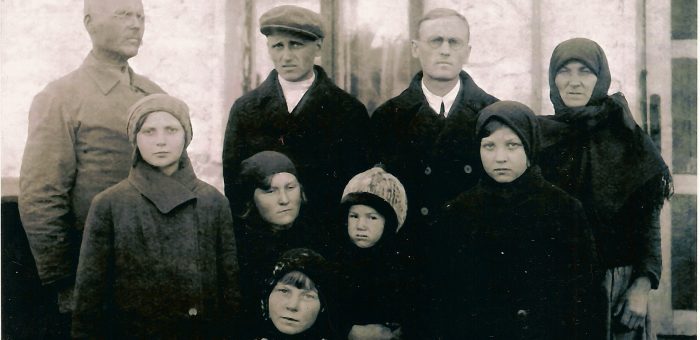
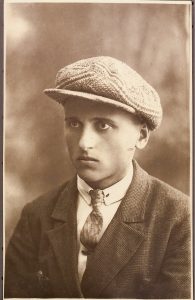
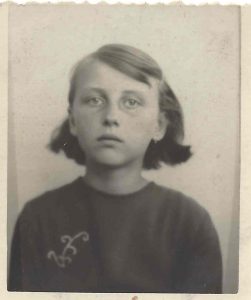
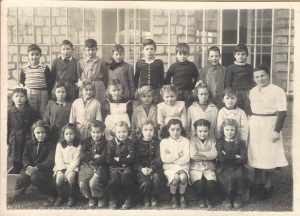



2 Comments
Thanks so much for your great leadership which brought me to the Green Party.
As a Canadian Ukrainian from a long line of dirt farmers I praise your initiative.
So much to say but will just say thank you again and again
Judy Zaichkowsky
Andrew, your family story reduced me to tears. I know all too well the effects of systematic genocide. I had Jewish relatives in France who suffered at the hands of the nazis in WWII. Thank you for honoring the people of Ukraine who suffered so much.